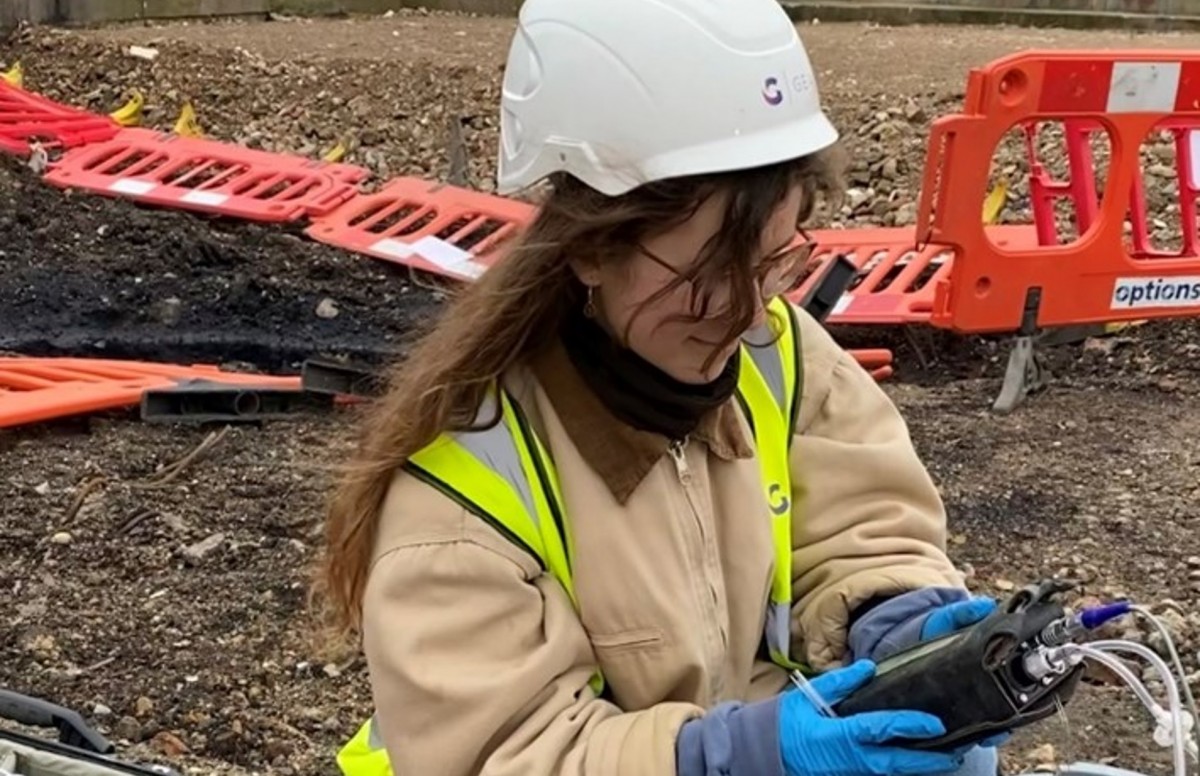Some Known Details About Geotheta
Some Known Details About Geotheta
Blog Article
9 Easy Facts About Geotheta Described
Table of ContentsGeotheta Fundamentals ExplainedThe Ultimate Guide To GeothetaGeotheta Things To Know Before You Get ThisAll About GeothetaGeotheta - An Overview

They conduct website examinations, accumulate samples, do laboratory examinations, and assess information to evaluate the suitability of the ground for building tasks - Consulting Engineer. Based on their searchings for, geotechnical engineers provide referrals for structure style, slope stability, keeping structures, and reduction of geotechnical risks. They team up with other professionals, such as designers, structural engineers, and building and construction teams, to make certain that geotechnical factors to consider are incorporated into the overall job design and application
By assessing the actions and buildings of dirt and rock, they can recognize possible geotechnical threats such as landslides, dirt negotiation, or incline instability. Their proficiency aids protect against failures or crashes that might threaten lives and building. Here are some detailed tasks and responsibilities of a geotechnical designer: Website Examination: Geotechnical designers conduct website examinations to gather data on subsurface problems.
They interpret the information to recognize the properties and behavior of the dirt and rock, including their toughness, permeability, compaction characteristics, and groundwater problems. Geotechnical Evaluation and Layout: Geotechnical engineers examine the information accumulated throughout site examinations to analyze the security and viability of the website for building and construction projects. They carry out geotechnical estimations and modeling to review elements such as birthing ability, negotiation, incline stability, side earth pressures, and groundwater flow.
How Geotheta can Save You Time, Stress, and Money.
Foundation Design: Geotechnical engineers play an important role in creating foundations that can securely support the designated structure. They analyze the dirt conditions and tons demands to determine the proper foundation kind, such as shallow structures (e.g., footings), deep structures (e.g (https://www.avitop.com/cs/members/geotheta.aspx)., stacks), or specialized methods like soil renovation. They think about variables such as negotiation limitations, birthing capability, and soil-structure interaction to develop optimum foundation layouts
They evaluate building strategies, monitor website activities, and conduct area evaluations to verify that the style suggestions are followed. If unexpected geotechnical concerns arise, they examine the circumstance and give suggestions for removal or modifications to the design. Threat Evaluation and Mitigation: Geotechnical designers examine geotechnical dangers and risks connected with the project website, such as landslides, liquefaction, or soil disintegration.

Cooperation and Communication: Geotechnical designers work closely with various other professionals involved in a task, such as architects, architectural engineers, and building groups. Effective communication and partnership are crucial to integrate geotechnical considerations right into the overall job design and building and construction procedure. Geotechnical designers offer technological proficiency, response queries, and make certain that geotechnical requirements are fulfilled.
The 5-Second Trick For Geotheta
Here are some kinds of geotechnical designers: Foundation Engineer: Foundation engineers focus on developing and assessing foundations for structures. They analyze the dirt conditions, lots needs, and website attributes to identify one of the most suitable foundation type and design, such as superficial foundations, deep foundations, or specialized methods like pile structures.
They examine the elements affecting slope security, such as soil homes, groundwater conditions, and slope geometry, and develop approaches to stop incline failures and mitigate dangers. Quake Designer: Quake engineers concentrate on analyzing and designing frameworks to endure seismic forces. They analyze the seismic danger of a website, evaluate dirt liquefaction possibility, and create seismic style standards to make sure the safety and resilience of structures during earthquakes.
They perform field testing, gather samples, this article and assess the accumulated information to define the dirt homes, geologic developments, and groundwater problems at a website. Geotechnical Instrumentation Designer: Geotechnical instrumentation designers concentrate on surveillance and gauging the actions of soil, rock, and frameworks. They install and maintain instrumentation systems that check aspects such as soil negotiation, groundwater degrees, slope activities, and architectural variations to analyze performance and give early cautions of potential problems.
Some Known Questions About Geotheta.
They conduct tests such as triaxial tests, debt consolidation examinations, direct shear examinations, and leaks in the structure examinations to gather information for geotechnical analysis and layout. Geosynthetics Engineer: Geosynthetics engineers concentrate on the design and application of geosynthetic materials, such as geotextiles, geogrids, and geomembranes. They make use of these products to improve soil security, reinforce slopes, offer drain remedies, and control erosion.
They often tend to be investigatory people, which implies they're intellectual, introspective, and analytical. They wonder, systematic, sensible, logical, and logical. Several of them are additionally social, meaning they're kind, generous, cooperative, client, caring, helpful, empathetic, tactful, and pleasant. Does this sound like you? Take our free career test to learn if geotechnical designer is among your top career matches.
In the workplace setting, geotechnical designers use specialized software application devices to carry out estimations, produce designs, and evaluate information. They prepare reports, review task specs, communicate with clients and group members, and coordinate task activities. The workplace setting provides a favorable environment for research, evaluation, and collaboration with various other experts involved in the project.
Everything about Geotheta
They often go to job sites to perform site examinations, analyze geotechnical conditions, and gather data for evaluation. These check outs involve traveling to different places, occasionally in remote or difficult surfaces. Geotechnical engineers may carry out dirt tasting, conduct examinations, and monitor building activities to make sure that the geotechnical facets of the project are being carried out correctly.
Geotechnical engineers additionally operate in specialized geotechnical laboratories. In these centers, they carry out experiments, carry out tests on soil and rock samples, and assess the design residential properties of the products. Geotechnical lab designers work thoroughly in these settings, taking care of screening equipment, operating tools, and videotaping information. They team up with various other research laboratory team to guarantee exact and dependable screening outcomes.
Report this page